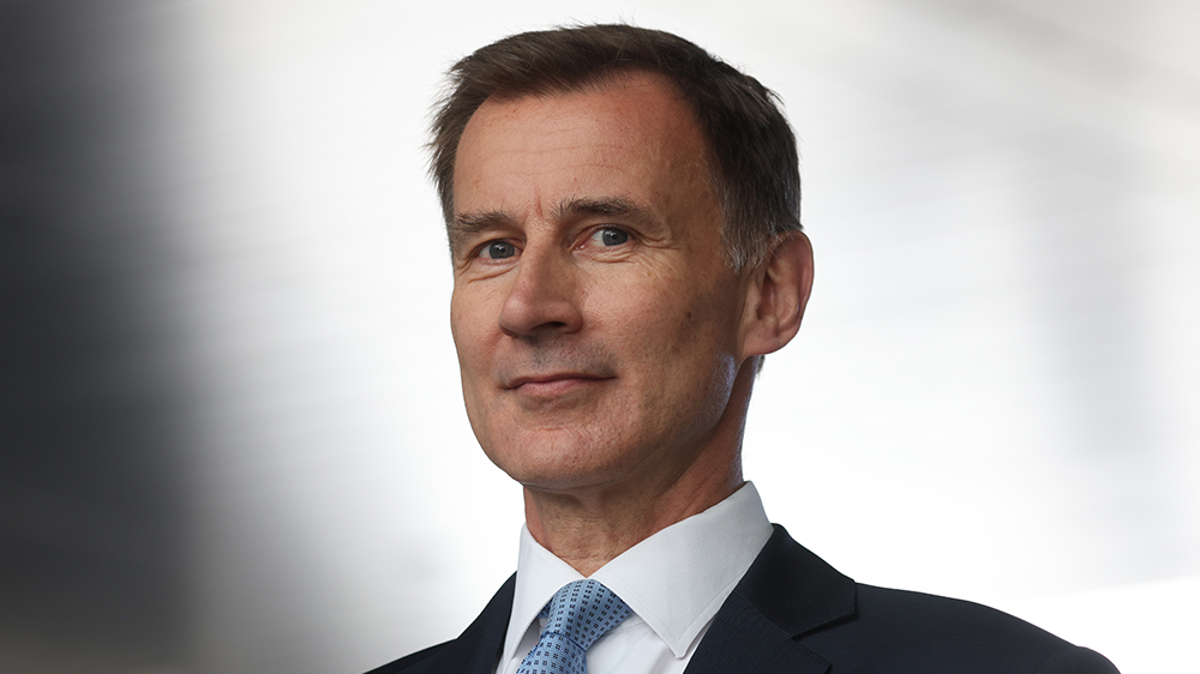Sign up for the View from Westminster email for expert analysis straight to your inbox
Get our free View from Westminster email
Jeremy Hunt has been urged to use this week’s Budget to wipe the energy bill debts accumulated by struggling families across the UK.
End Fuel Poverty Coalition figures shared with The Independent show the debt mountain from unpaid energy bills will rise from £2.5bn to £3bn if a further price hike goes ahead in April.
Mr Hunt is widely expected to ditch a planned £500 hike in the energy price guarantee (EPG). For the average household, it means annual gas and electricity bills could stay at around £2,500, instead of going up to £3,000.
However, the End Fuel Poverty Coalition warned the nation’s debts would still rise to £2.7bn because the six-month universal discount for gas and electricity bills is coming to an end.
The coalition of charities has urged the government to write off all debts for pre-payment meter customers, as well as introduce a debt-matching relief scheme for all others in debt.
Under the proposals by the Warm This Winter campaign, every £1 paid back by the customer would be matched by £2 paid back through a central debt relief fund.
Recommended
- UK firms at ‘serious risk’ from Silicon Valley Bank collapse, warns Jeremy Hunt
- ‘Sickening’: Tory backlash over small boats plan to detain children
- Junior doctors could earn more serving coffee at Pret, says union
Campaigners argue that the debt relief measures could be paid for through the £11bn “windfall” the government is estimated to have underspent on EPG support because of falling wholesale prices.
“The government has plenty of fiscal room to move with the energy price guarantee costing billions less than planned,” said Simon Francis, coordinator of the End Fuel Poverty Coalition. “The ball is in the chancellor’s court.”
He added: “This money could be used to help all households who have racked up debt due to the spiralling energy costs. There is an opportunity for the government to really help the financially vulnerable and put households back on an even keel.”
National Energy Action has warned that the number of households in fuel poverty will rise from 6.7 million to 7.5 million in April, even if Mr Hunt freezes the EPG at £2,500.
Joe Cox, Debt Justice senior policy officer, said: “It is time for the government to get its head out of the sand and help households tackle these unpayable debts. We will be watching the spring budget closely.”
It comes as UK Hospitality called for Mr Hunt to provide a further “shot of oxygen” for pubs and restaurants to help get them through the next six months – including help with energy bills.
Chancellor Jeremy Hunt set to freeze price guarantee, but debts to grow
(PA)
“If we allow businesses to fail now or fail to provide a shot of oxygen to get them through what will be a difficult six months, then we will see many businesses fail, many jobs will be lost and that public money will be wasted,” said Kate Nicholls.
The Treasury has already revealed that prepayment meter customers will no longer be charged more to receive their energy under reforms to be announced in the chancellor’s budget.
Mr Hunt is to end the “prepayment premium” from July, saving more than four million households £45 a year on their bills. Households on the pay-as-you-go meters currently pay more on average than direct debit customers.
Record numbers have fallen into energy bill debts during cost of living crisis
(PA)
The Treasury has also already set out a package of measures to boost workforce participation among the over-50s, the long-term sick and disabled, and benefits claimants.
It includes the axing of the system used to assess eligibility for sickness benefits, paying parents on universal credit childcare support upfront and increasing the amount they can claim by several hundred pounds.
The chancellor said on Sunday that said he makes “absolutely no apology” for being responsible with the public finances as he risked angering Tory MPs by playing down the prospect of major tax cuts.
“I still want us to have the most competitive business taxes anywhere in the world,” he told Sky News’ Sophy Ridge on Sunday on calls to scrap plans to raise corporation tax from 19 to 25 per cent. “Look, I am a Conservative who believes in a low-tax economy.”
Recommended
- Budget to encourage over-50s, disabled and benefits claimants back into work
- BBC chairman Richard Sharp faces calls to quit over Gary Lineker meltdown
“We’re not going to do what the last Labour government did and run out of money,” he added. “Businesses need the stability that comes from being responsible, so we will get there gradually [on tax cuts] – but get there we will.”
A group of Tory rebels led by Liz Truss accused Mr Hunt of undermining Brexit freedoms by agreeing to a deal on international tax rules. In a letter, the MPs urged the government to withdraw from an agreement that corporation tax should never fall below 15 per cent.
✕
Subscribe to Independent Premium to bookmark this article
Want to bookmark your favourite articles and stories to read or reference later? Start your Independent Premium subscription today.
SubscribeAlready subscribed? Log in{{/url}}

